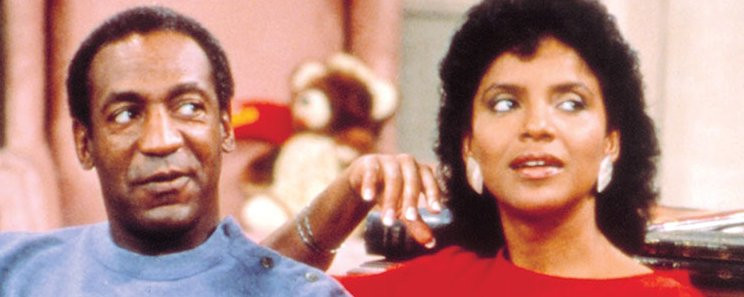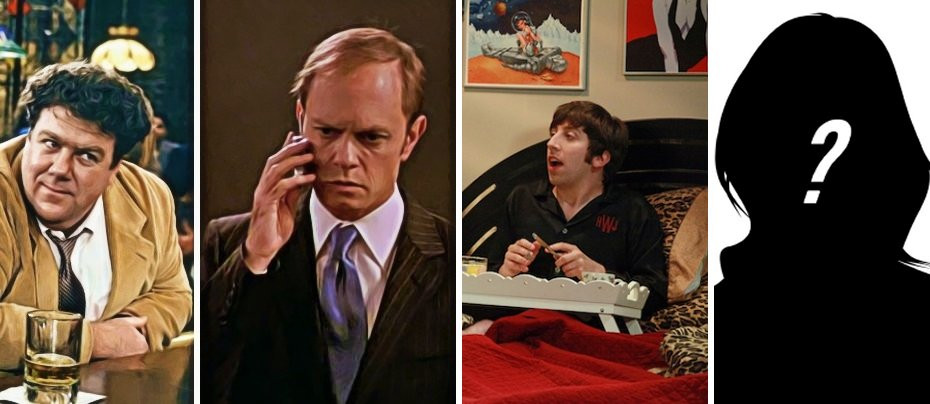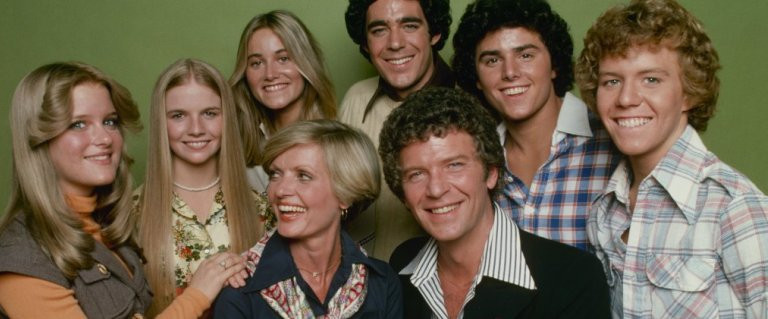
Rhoda
1974 - United StatesAfter four seasons as Mary Richards’ best friend on The Mary Tyler Moore Show, Rhoda Morgenstern (Valerie Harper) escaped Minneapolis and returned to the surroundings of her native New York City. Fans still loved Rhoda and her brash, man-hunting ways, but producers and CBS made the mistake of finding Rhoda her own Mr. Right. Still, at its best, Rhoda was a joy to watch–and it enjoyed a five season run.
Rhoda was the first official MTM spin-off; Phyllis and Lou Grant would soon follow. On paper, it made sense to give the once-overweight and insecure Jewish window dresser her own series as she slimmed down and became more self-confident, always wearing offbeat yet stylish outfits (for the 1970s that is). CBSentertainment chief Fred Silverman was determined to give Rhoda a series of her own–much as Norman Lear was already doing with characters introduced on the very successful All In The Family (which spawned Maude–its own spin-off Good Times–and The Jeffersons). Harper was initially reluctant to leave the Mary Tyler Moore cast until Moore herself (as both a friend and co-owner of MTM Productions) set her straight: “Fool! CBS is offering you a series. Take it!”
When Rhoda premiered on September 9th, 1974, she returned to New York City for a vacation and to see her younger sister Brenda (Julie Kavner), a spitting image of Rhoda four years earlier–overweight, lacking in confidence and suffering through one bad date after another. By this time, MTM fans were familiar with Rhoda’s overbearing, manipulative Jewish mother Ida, thanks to occasional guest appearances by comic and dancer Nancy Walker; she became a regular Rhoda cast member. (At the time, Walker was also well-known to TV viewers at the time for her role as Mildred, the maid on the NBC crime drama McMillian & Wife along with her endless commercials as Rosie the waitress for Bounty paper towels.) Occasionally seen on the show was Rhoda’s more laid-back dad Martin (Harold Gould).
During her vacation, Rhoda met Joe Gerard (David Groh), a divorced dad who owned his own building demolition firm. Instantly, sparks flew. Rhoda extended her vacation to be with Joe; finally she decided to move back to New York City to pursue the relationship. After several weeks of dating and courtship, Joe asked Rhoda to move in with him. Rhoda considered the offer, but said she would live with Joe only if they were married. Reluctantly, Joe agreed. It was a victory for CBS Silverman, who tried and failed to get Mary Richards hitched. This time, a marriage for Rhoda would not be denied.
Right from the first episode, Rhoda was a top ten smash–giving Monday Night Football a run for its money and rating even higher than Mary Tyler Moore. On October 28th, 1974, more than 50 million viewers tuned to watch the wedding of Rhoda and Joe. Mary, Lou Grant, Murray Slaughter, Georgette Franklin and Phyllis Lindstrom guest-starred on the hour-long episode. The ceremony nearly didn’t go off as planned, because self-absorbed Phyllis forgot to pick Rhoda up from sister Brenda’s apartment and drive her to Ida and Martins apartment in the Bronx for the wedding. A determined Rhoda–wearing her formal white dress, veil and train–failed to get a cab when Phyllis didn’t show up. She ended up taking the infamous New York subway system to the Bronx (one rider tried to write graffiti on her dress). Fortunately, Rhoda arrived in time to take her vows with Joe. The couple then settled into married life, moving into a fantastic upper floor apartment in Brenda’s building and Rhoda launching her own window decorating firm.
Even though Rhoda was a top ten hit for its first two seasons, the shows writers were becoming increasingly unhappy with the shows direction. Producer Charlotte Brown told TV Guide magazine in 1976 the marriage of Rhoda and Joe may not have been the best idea:
“We all suddenly realized we were getting bored with our show. Maybe the audience wasn’t bored--yet--but we figured that at some time in the future it was inevitable the way we were going. Everything was so nice for our Rhoda in her happily married life. She had no vulnerability; she wasn’t the underdog anymore. We kept ending up with plots that featured the funny insecurities of poor Brenda. It got so that wed say 'When in doubt, go to Brenda.' It was scary. Sometimes wed sit around for days to think up a single story with some conflict that could focus on Rhoda.”
After lobbying by the producers and writers, both MTM and CBS reluctantly agreed on a new direction for Rhoda. As the show’s third season began, Rhoda and Joe began fighting more and the two eventually went to a marriage counsellor. Joe confessed he only married Rhoda because she refused to live with him without a wedding ring. The couple separated after efforts to reconcile went nowhere. Not long after, Rhoda and Joe officially divorced. Joe moved away (David Groh was written out of the series altogether), while Rhoda downsized into a smaller, cheaper apartment in her building, switching units with clothing store owner Gary Levy (Ron Silver). Rhoda and Gary eventually became platonic friends as she re-entered the dating scene.
The final two seasons had Rhoda going to work for a costume company owned by a gruff (and Lou Grant-like) owner named Jack Doyle (Kenneth McMillian). Her trademark bad dates continued. Meanwhile, Brenda (who was now thinner and more assertive–sound familiar?) finally found a steady boyfriend in roller skater and tollbooth operator Benny Goodwin (Ray Butkenica); the two eventually became engaged. During this time, Ida and Martin separated and Martin agreed to date Ida in an effort to woo her back.
Instead of giving new life to Rhoda, all the changes hastened the shows demise. Ratings fell sharply; by its final season, it ranked 105th among all series aired by the three major television networks. CBS cancelled Rhoda on December 9th, 1978; four unaired episodes were later seen in syndication.
Seen this show? How do you rate it?
Seen this show? How do you rate it?
Published on January 24th, 2019. Written by Michael Spadoni (2010) for Television Heaven.










